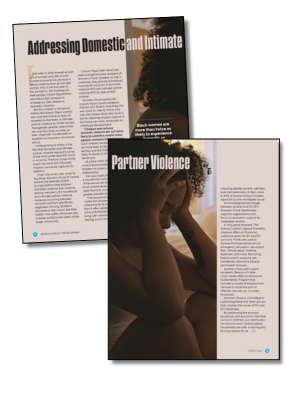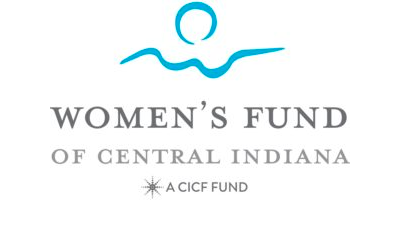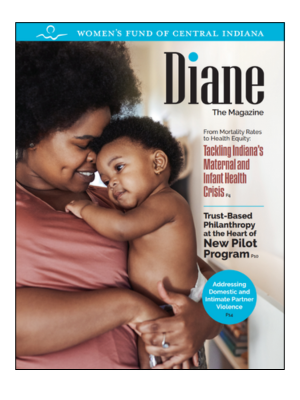 Estimates in 2019 showed around 42% of women and 28% of men in Indiana experience physical or sexual violence from an intimate partner. And in the first year of the pandemic, the Indianapolis Metropolitan Police Department recorded a 65% increase in emergency calls related to domestic violence.
Estimates in 2019 showed around 42% of women and 28% of men in Indiana experience physical or sexual violence from an intimate partner. And in the first year of the pandemic, the Indianapolis Metropolitan Police Department recorded a 65% increase in emergency calls related to domestic violence.
But this impact is not always distributed evenly. Black women are more than twice as likely to experience domestic or intimate partner violence as White women. Transgender people, meanwhile, are over four times as likely as their cisgender counterparts to experience physical or emotional abuse.
Undergirding all of this is the fact that domestic and intimate partner violence represent some of the most underreported crime in America. The true scope of the issue—let alone the individual impact—cannot be captured by statistics.
That’s why every year since its founding, Women’s Fund of Central Indiana has awarded grants to organizations that address domestic violence (any violence among members of a household) and intimate partner violence (violence occurring between romantic partners specifically, regardless of living situation). We believe that—much like their health—the safety of women and children points to the safety of the larger community.
Coburn Place Safe Haven has been a longtime grant recipient of Women’s Fund. Located on Indy’s northside, they provide transitional housing for survivors of domestic violence (DV) and intimate partner violence (IPV) as well as their children.
Women’s Fund spoke with Coburn Place Communications Director Kim Easton. One thing she was quick to note for those who may not closely follow this issue is the far-reaching impact violence in the home can have, especially on childhood development.
“Children who witness domestic violence are 74% more likely to commit a violent crime against someone else,” Kim said. Such children are also found to be more likely to abuse drugs or alcohol and are three times more likely to abuse or be abused in adulthood.
At a time when their minds are most impressionable, violence can threaten to shape a child’s future relationships.
Kim also notes the impact on a household’s economic health. While abuse can and does happen at all income levels, poverty has been found to correlate with a greater prevalence of DV and IPV.
That economic hardship also makes the prospect of leaving a violent home far more complicated than it often appears to those without firsthand experience of living with violence. For many, leaving such a home means choosing greater poverty, perhaps even homelessness. In fact, close to 60% of women living homeless report DV as the immediate cause.
Acknowledging that linkage between poverty and DV/IPV, Women’s Fund intentionally supports organizations that focus on economic support for vulnerable women.
A 2023 grant recipient, The Indiana Coalition Against Domestic Violence offers an Economic Justice program for DV and IPV survivors. Funds are used to remove the financial barriers to emergency relocation, document fees, vehicle repair, medical expenses, and more. Removing that economic pressure can sometimes allow for a full and permanent recovery.
Another of last year’s grant recipients, Beacon of Hope Crisis Center offers an Economic Sustainability Program that includes a variety of employment services to assist the 40% of referrals who are un- or under-employed.
Women’s Fund is committed to supporting these and other groups that consider the issues of DV and IPV holistically.
By addressing the physical, emotional, and economic risks that survivors confront, our community can ensure more Central Indiana households are safe, nurturing and thriving spaces for all.
This article was published within the August 2024 issue of the Women’s Fund’s Diane magazine.

